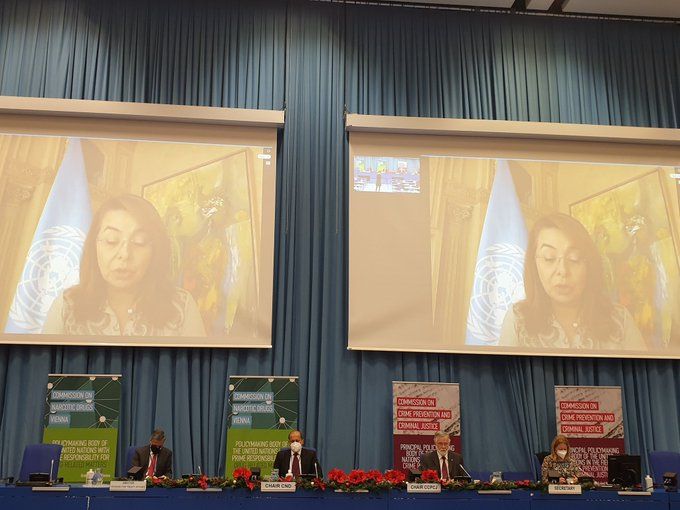The UN Commission on Narcotic Drugs voted on Wednesday to remove cannabis and cannabis-derived substances from its “Schedule IV” list of the world’s most dangerous narcotics.
The move comes nearly two years after the WHO recommended to the UN Secretary General that cannabis and cannabis resin be removed from Schedule IV of the 1961 Single Convention on Narcotic Drugs – a classification of drugs with “particularly dangerous properties”, including narcotics such as fentanyl, heroin and other opioids.
While the long-delayed decision is non-binding for countries – it is expected to clear the way for more national legislation that would enable more scientific research into medical cannabis and cannabis derivatives, including non psychoactive cannabidiol (CBD).
There has been a surge of interest over the past decade in the therapeutic use of cannabis as “medical marijuana”, particularly for chronic pain management.
“Medical marijuana”
“Medical marijuana”, e.g., cannabis grown and prescribed for some form of therapeutic treatment, had been legalized in 30 countries around the world, ranging from Argentina, Chile, Canada, Germany, Greece, Israel, Switzerland, Turkey, and Zimbabwe, and some states in United States.
Recent years have also seen a major uptake of non-psychoactive cannabis derivatives, particularly CBD – with one brand-name formulation “Epidiolex” gaining US Food and Drug Administration approval for treating a rare form of childhood epilepsy. Other studies have suggested that CBD may also have potential therapeutic uses against anxiety, depression and as adjunctive therapy to common anti-psychotics. Despite the increasing evidence about potential therapeutic benefits, mainstream medical researchers have often been hamstrung by continued tight legal restrictions on production, sale and trade in cannabis, as a result of the Schedule IV international classification, which can stymie legitimate research.
[huge_it_slider id=”15″]At a meeting in November 2018, the WHO Expert Committee on Drug Dependence (ECDD), recommended that cannabis and cannabis-derived products be removed from the list of the most dangerous opoid and narcotic drugs. Those recommendations were transmitted in a letter from WHO Director General Tedros Adhanom Gheyebresus to UN Secretary General Antonio Guterres in late January of 2019. However, the UN Commission meeting in March of that year postponed consideration of the WHO proposal – due in part to objections from members states at the time, including the United States, to the reclassification.
In Tuesday’s session, the 55 member states attending the Commission voted 27 in favour of the WHO recommendation and 25 voted against, while one abstained, clearing the way to greater recognition of the medicinal and therapeutic potential of the commonly-used but still largely illegal recreational drug.
The United States cast its vote in favor of removing cannabis from Schedule IV of the Single Convention while retaining them in Schedule I, saying it is “consistent with the science demonstrating that while a safe and effective cannabis-derived therapeutic has been developed, cannabis itself continues to pose significant risks to public health and should continue to be controlled under the international drug control conventions”.


